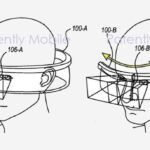Microsoft’s HoloLens 2 AR headset already uses chips from Qualcomm. And its future AR glasses will do the same. Qualcomm and Microsoft announced a collaboration at this year’s CES 2022 on Tuesday, indicating that future AR glasses will use a new custom chip. Future products using the custom chips will aim to combine Microsoft’s mixed-reality software with Qualcomm’s phone-based AR platform.
Qualcomm said the partnership will also integrate software platforms. Microsoft already has its cross-device Microsoft Mesh VR/AR ecosystem, as well as its Windows Mixed Reality platform, and is integrating teams into VR and AR this year. Qualcomm, however, is developing a mobile software platform called Snapdragon Spaces that will serve as a bridge between the coming wave of AR glasses and Android phones.
All things considered, smart glasses are still a work in progress, but one of the most important things these types of devices still need is a common software platform. That sounds like exactly the kind of problem Qualcomm wants to address with its partnership.
Qualcomm’s press release says the partnership includes “the development of custom AR chips to enable a new wave of efficient, lightweight AR glasses that deliver rich and immersive experiences, with plans to integrate software such as Microsoft Mesh and the Snapdragon Spaces XR developer platform.” Whether this means Microsoft’s future AR glasses will have additional features beyond the rest of Qualcomm’s planned product offerings isn’t entirely clear, but it does suggest that a common thread is already emerging for connectivity in future AR products. Certainly, this is exactly what the whole “meta-universe strategy” that seems to be underway everywhere right now has needed from the start.
Microsoft is already exploring the use of HoloLens 2 in more outdoor settings, as a springboard for future smaller glasses-like devices. Last year, the company announced an exploratory partnership with Niantic to explore how games will ultimately work on smart glasses.






